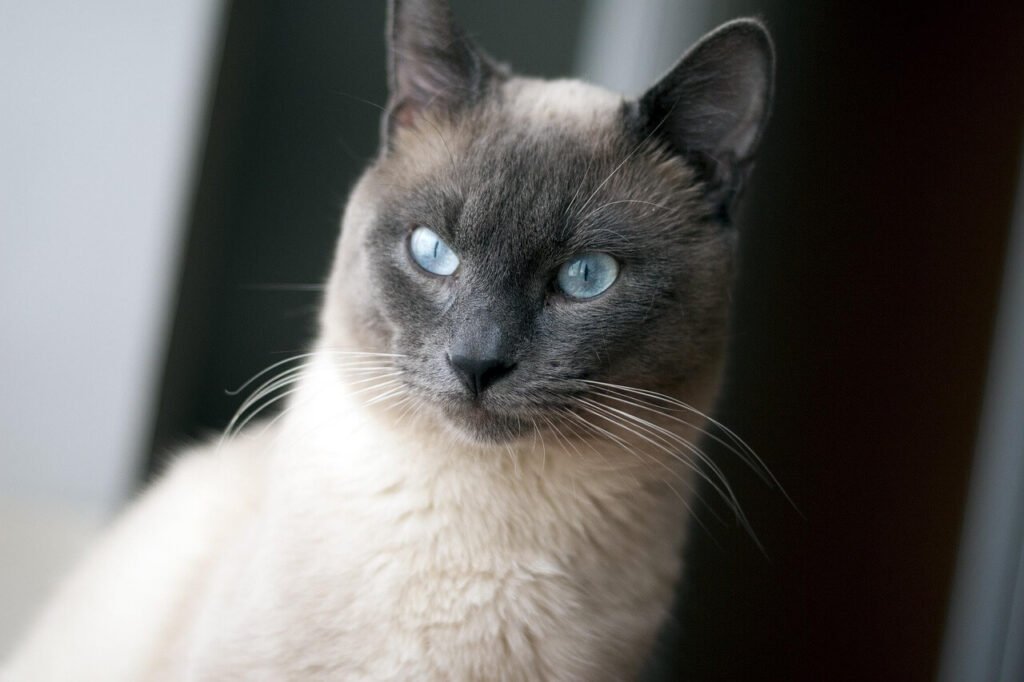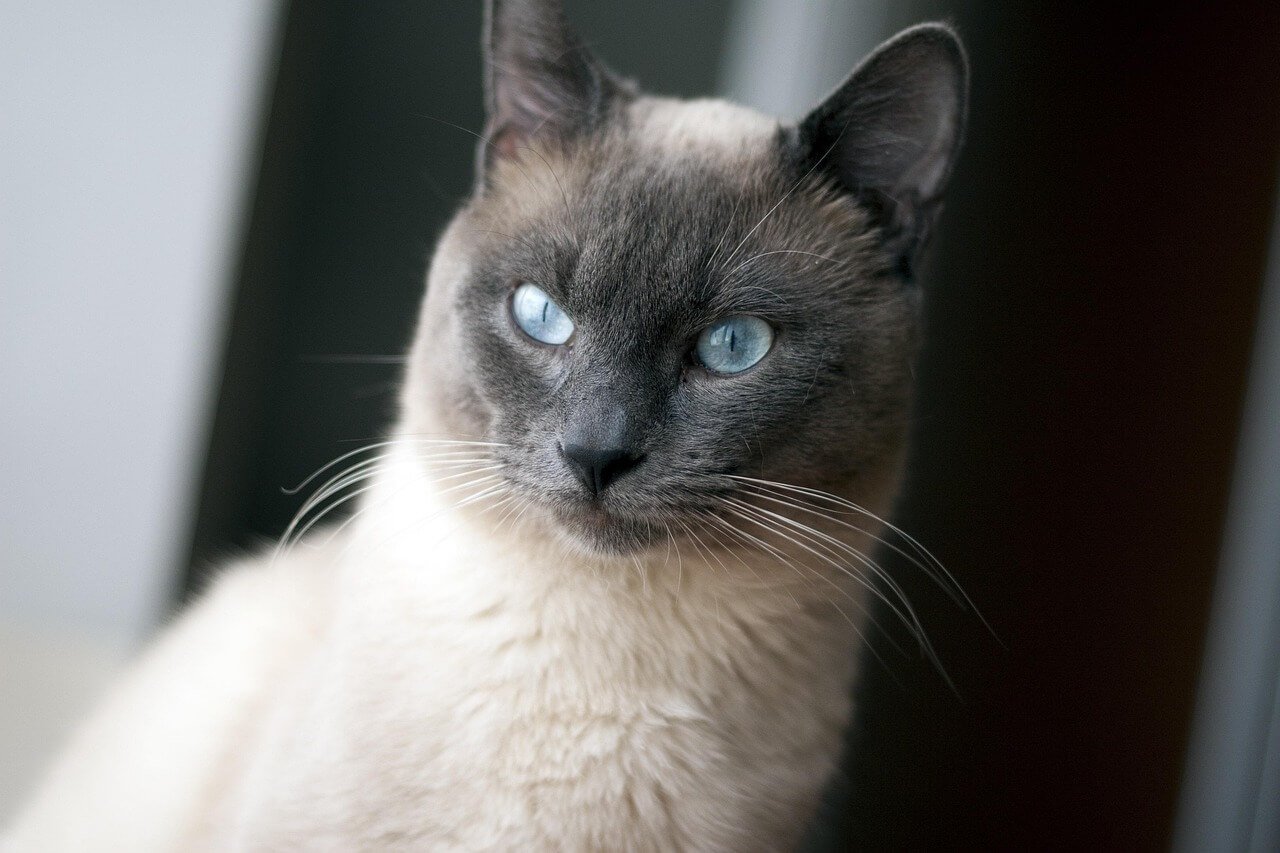Why Is My Cat Losing Hair? Understanding the Causes and Solutions
Hair loss in cats, also known as alopecia, can be alarming for pet owners. While shedding is a normal part of a cat’s life, excessive or patchy hair loss may indicate an underlying issue that requires attention. From allergies to stress, parasites to hormonal imbalances, there are numerous reasons why your feline friend might be losing hair. The key is to identify the cause early and take appropriate steps to address it. In this guide, we’ll explore the potential reasons behind your cat’s hair loss, offer practical solutions, and provide tips for maintaining their coat health. By understanding what’s happening, you can help your cat feel comfortable and confident again.
What’s Behind Your Cat’s Hair Loss? Key Factors to Consider
Hair loss in cats can stem from a variety of causes, ranging from medical conditions to behavioral issues. Identifying the root cause is the first step toward helping your cat regain their healthy coat. Here are some common reasons for hair loss:
Allergies :
Cats can develop allergies to food, environmental factors like pollen, or flea bites, leading to itching and hair loss.Parasites :
Fleas, ticks, and mites can irritate your cat’s skin, causing them to scratch excessively and lose hair.Stress or Anxiety :
Overgrooming due to stress or anxiety can result in bald patches or thinning fur.Hormonal Imbalances :
Conditions like hyperthyroidism or Cushing’s disease can disrupt your cat’s hormonal balance, affecting their coat.Skin Infections :
Bacterial or fungal infections, such as ringworm, can damage the skin and lead to hair loss.
Understanding these causes can help you determine whether the issue is behavioral, environmental, or medical. Early intervention is crucial for effective treatment.
When to Worry: Red Flags of Problematic Hair Loss
While some hair loss is normal, certain signs indicate that your cat’s condition may require veterinary attention. Recognizing these warning signs can help you act promptly and prevent further complications.
Patchy or Symmetrical Bald Spots :
Uneven or symmetrical hair loss could signal an underlying health issue.Redness or Scabs on the Skin :
Irritated skin or open sores suggest infection or severe irritation.Excessive Scratching or Licking :
Constant grooming in one area may indicate discomfort or pain.Changes in Behavior :
If your cat seems lethargic, irritable, or avoids being touched, it could point to a deeper problem.Weight Loss or Appetite Changes :
Hair loss accompanied by weight loss or changes in eating habits may indicate systemic illness.
If you notice any of these symptoms, it’s important to consult a veterinarian. They can perform tests to diagnose the issue and recommend appropriate treatment.
Check this guide 👉Cat Losing Hair at Base of Tail: Best 7 Expert Tips!
Check this guide 👉Cat Losing Hair Around Eyes: Best 7 Expert Tips!

Possible Causes of Hair Loss | Solutions to Try |
|---|---|
Allergies | Identify allergens; adjust diet or environment |
Parasites | Use vet-recommended flea/tick treatments |
Stress or Anxiety | Provide calming activities and safe spaces |
Hormonal Imbalances | Consult a vet for hormone testing |
Skin Infections | Treat with medicated shampoos or antibiotics |
Proactive Steps to Keep Your Cat’s Coat Healthy
Preventing hair loss involves addressing potential triggers and maintaining your cat’s overall well-being. With a few simple strategies, you can reduce the risk of excessive shedding and keep your cat’s coat shiny and healthy.
Regular Grooming :
Brush your cat’s fur regularly to remove loose hair and prevent matting.Balanced Diet :
Feed your cat high-quality food rich in essential nutrients like omega-3 fatty acids.Flea and Tick Prevention :
Use vet-approved products to protect against parasites year-round.Minimize Stress :
Create a calm environment with plenty of hiding spots and interactive toys.Routine Vet Check-Ups :
Schedule annual exams to catch potential health issues early.
By taking these preventive measures, you can help ensure your cat stays healthy and comfortable, reducing the likelihood of hair loss.
Psychological Factors: When Stress Leads to Hair Loss
Sometimes, hair loss in cats isn’t caused by physical ailments but rather by psychological factors. Cats are sensitive creatures, and changes in their environment or routine can trigger stress-related behaviors like overgrooming. Here’s how to identify and address these issues:
Overgrooming Due to Anxiety :
Cats may lick themselves excessively as a way to self-soothe during stressful times.Boredom or Lack of Stimulation :
A lack of mental enrichment can lead to obsessive behaviors, including licking.Changes in Routine :
Moving homes, introducing new pets, or altering schedules can upset your cat.Territorial Stress :
Conflicts with other pets may cause stress-induced hair loss.Separation Anxiety :
Cats left alone for long periods may overgroom out of loneliness or frustration.
Addressing these behavioral triggers through environmental adjustments and enrichment can help reduce stress-related hair loss. Consult a vet or animal behaviorist if needed.
The Role of Diet in Maintaining a Healthy Coat
A cat’s diet plays a crucial role in the health of their skin and fur. Nutritional deficiencies can lead to dry, brittle hair and even hair loss. Ensuring your cat receives a balanced diet is essential for preventing these issues. Here are some key nutrients to focus on:
Omega-3 Fatty Acids :
These healthy fats promote skin hydration and reduce inflammation, improving coat quality.Protein :
Cats require high-quality protein to support hair growth and repair damaged tissues.Vitamins A and E :
These antioxidants help maintain skin health and protect against oxidative stress.Zinc :
A deficiency in zinc can lead to flaky skin and excessive shedding.Biotin :
This B-vitamin supports keratin production, which is essential for strong, healthy hair.
By ensuring your cat’s diet includes these vital nutrients, you can prevent hair loss caused by nutritional gaps. Always consult your vet before making significant dietary changes.
Understanding the Difference Between Normal Shedding and Concerning Hair Loss
Cats naturally shed more during certain seasons, particularly in spring and fall, as they adjust to temperature changes. However, it’s important to distinguish between normal shedding and problematic hair loss. Here’s how to tell the difference:
Seasonal Shedding :
Occurs evenly across the body and doesn’t leave bald patches or irritated skin.Localized Hair Loss :
Patchy or concentrated bald spots often indicate an underlying issue.Excessive Licking or Scratching :
If your cat is obsessively grooming one area, it may signal discomfort or illness.Changes in Coat Texture :
Dull, dry, or greasy fur can accompany unhealthy hair loss but not typical shedding.Timing and Frequency :
Seasonal shedding happens predictably, while sudden or year-round hair loss is unusual.
Recognizing these differences helps you determine whether your cat’s hair loss is normal or requires veterinary attention. Trust your instincts if something seems off.
How Your Cat’s Surroundings Impact Their Coat Health
Your cat’s environment can significantly influence their skin and coat condition. Allergens, irritants, and other external factors may contribute to hair loss. Identifying and addressing these environmental triggers can help restore your cat’s coat health.
Household Cleaners :
Harsh chemicals in cleaning products can irritate your cat’s skin and cause itching.Dust and Pollen :
Airborne allergens can settle on your cat’s fur, leading to allergic reactions.Humidity Levels :
Low humidity can dry out your cat’s skin, making it more prone to flakiness and hair loss.Temperature Extremes :
Excessive heat or cold can stress your cat’s system, affecting their coat quality.Toxic Plants :
Certain houseplants, like lilies, can poison cats and damage their skin and fur.
By creating a safe and comfortable environment, you can minimize external factors that contribute to hair loss. Small changes can make a big difference in your cat’s overall well-being.
Frequently Asked Questions About Cat Hair Loss
Is it normal for my cat to shed a lot?
Some shedding is normal, but excessive or patchy hair loss may indicate a problem.
Can I treat my cat’s hair loss at home?
Mild cases may improve with grooming and dietary changes, but consult a vet for persistent issues.
Does hair loss mean my cat has fleas?
Not necessarily, but fleas are a common cause of itching and hair loss.
How can I tell if my cat’s hair loss is due to stress?
Look for signs like overgrooming, changes in behavior, or recent environmental changes.
Will my cat’s hair grow back after treatment?
In most cases, yes, once the underlying cause is addressed and treated properly.
Final Thoughts: Supporting Your Cat’s Coat Health
Hair loss in cats can be distressing, but understanding its causes and taking proactive steps can make all the difference. Whether the issue stems from allergies, parasites, stress, or something else entirely, early detection and proper care are key to restoring your cat’s comfort and confidence. By staying attentive to your cat’s needs, providing a nurturing environment, and seeking professional help when necessary, you can ensure they remain happy and healthy. Remember, a glossy coat is often a reflection of overall well-being—so give your feline friend the love and care they deserve, and watch them thrive!
Dog Tapeworm Life Cycle: Best 7 Expert Tips! – Learn how tapeworms infect dogs, spot symptoms, and break the cycle with expert prevention strategies.
Anxious Cat Body Language: Best 7 Expert Tips! – Learn to spot signs of stress, understand triggers, and help your cat feel safe and relaxed.
Anxious Dog Body Language: Best 7 Expert Tips! – Learn to spot signs of anxiety, respond effectively, and help your dog feel safe and secure.
Is Breeding Dogs Bad? Best 7 Expert Tips! – Explore the ethics, benefits, and risks of dog breeding to make informed decisions for a better future.





